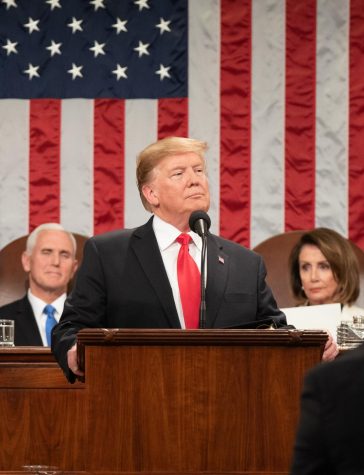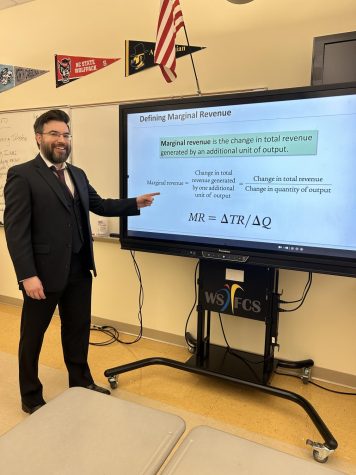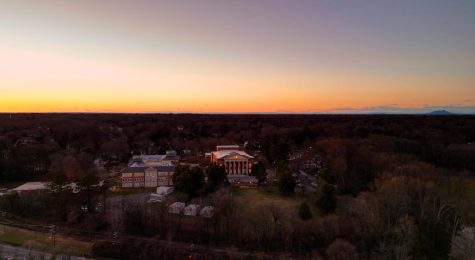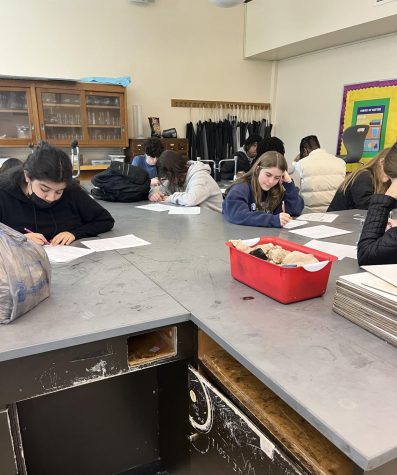State of the Union causes mixed reactions
February 28, 2019
 On Tuesday February 5, President Donald Trump fulfilled his constitutional obligation to update the Congress on the state of our union. But in the weeks leading up to it, the speech seemed to be in jeopardy.
On Tuesday February 5, President Donald Trump fulfilled his constitutional obligation to update the Congress on the state of our union. But in the weeks leading up to it, the speech seemed to be in jeopardy.
The President was originally going to give his State of the Union speech on January 29, but was rebuffed by Speaker of the House Nancy Pelosi. For the President to deliver the State of the Union, they must be invited to enter the House chambers by the Speaker. For the duration of the historically long 35 day government shutdown, Pelosi refused to invite the President to the Capitol Building; this was a somewhat unprecedented refusal.
“To my knowledge, there have been late invitations but I think the general mechanisms of Washington D.C dictate a basic decorum regardless of partisan divides, especially in the television age,” civics and economics teacher Cristofer Wiley said. “I don’t know that there’s ever been an invitation withheld deliberately in a political sense or as meant as a personal slight, but I think we are in territory where the old rules and customs just don’t apply in the same way.”
Pelosi also gave Trump the option to submit his speech in writing if he wished, which many presidents did in the pre-radio era. With the shutdown having ended on January 25, the President was invited to give his speech on February 5 by Pelosi.
The President’s State of the Union address covered a wide variety of topics over the course of its hour and a half duration. The President started the speech calling for unity and bipartisanship, and touting the economy. He claimed that economic growth had increased significantly over the past two years, and that unemployment had decreased overall and for many minority groups.
The President also went through discussing the stories of several guests at the state of the Union. He discussed the story of three veterans who had fought on D-Day, a child who survived cancer and a woman who had been locked up for years under mandatory minimum sentencing laws for drug crimes. He also told the story of two holocaust survivors, one of whom had been at the Tree of Life Synagogue when it was attacked in 2018.
The President also addressed a wide variety of current political and national issues in his speech. He implored congress to outlaw late term abortions, restated his support for a border wall and claimed that AIDS would soon no longer be a threat to Americans. Most controversially, the President indicated that he believes the government cannot function effectively while there are open investigations against him.
Democrat Stacy Abrams gave a speech in response to the State of the Union, emphasizing the plight of lower class Americans, advocating combating voter suppression and appealing for Americans to not tolerate discrimination in any form.
Parts of Trump’s speech, such as his calls for bipartisanship and for ending HIV/AIDS, have been lauded some in the public. But Reynolds senior Lydia Evans had a different take. She was frustrated by the Presidents lack of acknowledgement of other prominent global issues.
“He didn’t talk about climate change which is really sad,” Evans said.
Evans was frustrated the President didn’t address the issue of CO2 emissions raising the average global temperature, which will significantly disrupt the world’s climate and weather in the coming decades.
Photo provided by Creative Commons












